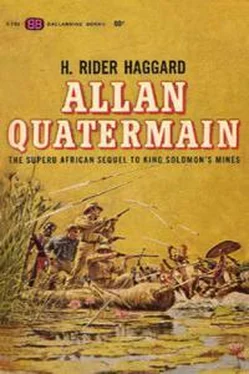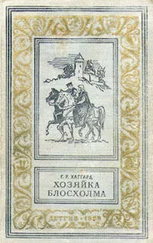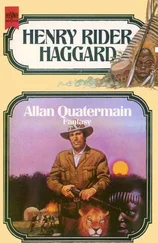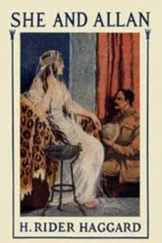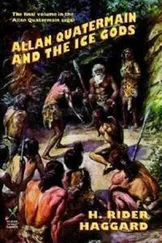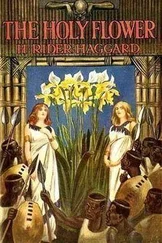Генри Хаггард - Allan Quatermain
Здесь есть возможность читать онлайн «Генри Хаггард - Allan Quatermain» весь текст электронной книги совершенно бесплатно (целиком полную версию без сокращений). В некоторых случаях можно слушать аудио, скачать через торрент в формате fb2 и присутствует краткое содержание. Год выпуска: 2014, Издательство: epubBooks Classics, Жанр: Путешествия и география, на английском языке. Описание произведения, (предисловие) а так же отзывы посетителей доступны на портале библиотеки ЛибКат.
- Название:Allan Quatermain
- Автор:
- Издательство:epubBooks Classics
- Жанр:
- Год:2014
- ISBN:нет данных
- Рейтинг книги:4 / 5. Голосов: 1
-
Избранное:Добавить в избранное
- Отзывы:
-
Ваша оценка:
- 80
- 1
- 2
- 3
- 4
- 5
Allan Quatermain: краткое содержание, описание и аннотация
Предлагаем к чтению аннотацию, описание, краткое содержание или предисловие (зависит от того, что написал сам автор книги «Allan Quatermain»). Если вы не нашли необходимую информацию о книге — напишите в комментариях, мы постараемся отыскать её.
, Allan Quatermain and his companions once more set out for Africa, this time in search of a white race reputed to live north of Mount Kenya. They survive fierce encounters with Masai warriors, undergo a terrifying subterranean journey, and discover a lost civilization before being caught up in a passionate love-triangle that engulfs the country in a ferocious civil war. Haggard not only narrates his story with wonderfully dramatic and poetic touches, but also reveals many Victorian preoccupations with evolution and race, sexuality, and the New Woman.
Allan Quatermain — читать онлайн бесплатно полную книгу (весь текст) целиком
Ниже представлен текст книги, разбитый по страницам. Система сохранения места последней прочитанной страницы, позволяет с удобством читать онлайн бесплатно книгу «Allan Quatermain», без необходимости каждый раз заново искать на чём Вы остановились. Поставьте закладку, и сможете в любой момент перейти на страницу, на которой закончили чтение.
Интервал:
Закладка:
'There,' said Mr Mackenzie, 'did you ever see a sword like that?'
We all examined it and shook our heads.
'Well, I have got it to show you, because this is what the man who said he had seen the white people brought with him, and because it does more or less give an air of truth to what I should otherwise have set down as a lie. Look here; I will tell you all that I know about the matter, which is not much. One afternoon, just before sunset, I was sitting on the veranda, when a poor, miserable, starved–looking man came limping up and squatted down before me. I asked him where he came from and what he wanted, and thereon he plunged into a long rambling narrative about how he belonged to a tribe far in the north, and how his tribe was destroyed by another tribe, and he with a few other survivors driven still further north past a lake named Laga. Thence, it appears, he made his way to another lake that lay up in the mountains, "a lake without a bottom" he called it, and here his wife and brother died of an infectious sickness—probably smallpox—whereon the people drove him out of their villages into the wilderness, where he wandered miserably over mountains for ten days, after which he got into dense thorn forest, and was one day found there by some white men who were hunting, and who took him to a place where all the people were white and lived in stone houses. Here he remained a week shut up in a house, till one night a man with a white beard, whom he understood to be a "medicine–man", came and inspected him, after which he was led off and taken through the thorn forest to the confines of the wilderness, and given food and this sword (at least so he said), and turned loose.'
'Well,' said Sir Henry, who had been listening with breathless interest, 'and what did he do then?'
'Oh! he seems, according to his account, to have gone through sufferings and hardships innumerable, and to have lived for weeks on roots and berries, and such things as he could catch and kill. But somehow he did live, and at last by slow degrees made his way south and reached this place. What the details of his journey were I never learnt, for I told him to return on the morrow, bidding one of my headmen look after him for the night. The headman took him away, but the poor man had the itch so badly that the headman's wife would not have him in the hut for fear of catching it, so he was given a blanket and told to sleep outside. As it happened, we had a lion hanging about here just then, and most unhappily he winded this unfortunate wanderer, and, springing on him, bit his head almost off without the people in the hut knowing anything about it, and there was an end of him and his story about the white people; and whether or no there is any truth in it is more than I can tell you. What do you think, Mr Quatermain?'
I shook my head, and answered, 'I don't know. There are so many queer things hidden away in the heart of this great continent that I should be sorry to assert that there was no truth in it. Anyhow, we mean to try and find out. We intend to journey to Lekakisera, and thence, if we live to get so far, to this Lake Laga; and, if there are any white people beyond, we will do our best to find them.'
'You are very venturesome people,' said Mr Mackenzie, with a smile, and the subject dropped.
Chapter IV.
Alphonse and His Annette
After dinner we thoroughly inspected all the outbuildings and grounds of the station, which I consider the most successful as well as the most beautiful place of the sort that I have seen in Africa. We then returned to the veranda, where we found Umslopogaas taking advantage of this favourable opportunity to clean all the rifles thoroughly. This was the only work that he ever did or was asked to do, for as a Zulu chief it was beneath his dignity to work with his hands; but such as it was he did it very well. It was a curious sight to see the great Zulu sitting there upon the floor, his battleaxe resting against the wall behind him, whilst his long aristocratic–looking hands were busily employed, delicately and with the utmost care, cleaning the mechanism of the breech–loaders. He had a name for each gun. One—a double four–bore belonging to Sir Henry—was the Thunderer; another, my 500 Express, which had a peculiarly sharp report, was 'the little one who spoke like a whip'; the Winchester repeaters were 'the women, who talked so fast that you could not tell one word from another'; the six Martinis were 'the common people'; and so on with them all. It was very curious to hear him addressing each gun as he cleaned it, as though it were an individual, and in a vein of the quaintest humour. He did the same with his battle–axe, which he seemed to look upon as an intimate friend, and to which he would at times talk by the hour, going over all his old adventures with it—and dreadful enough some of them were. By a piece of grim humour, he had named this axe 'Inkosi–kaas', which is the Zulu word for chieftainess. For a long while I could not make out why he gave it such a name, and at last I asked him, when he informed me that the axe was very evidently feminine, because of her womanly habit of prying very deep into things, and that she was clearly a chieftainess because all men fell down before her, struck dumb at the sight of her beauty and power. In the same way he would consult 'Inkosi–kaas' if in any dilemma; and when I asked him why he did so, he informed me it was because she must needs be wise, having 'looked into so many people's brains'.
I took up the axe and closely examined this formidable weapon. It was, as I have said, of the nature of a pole–axe. The haft, made out of an enormous rhinoceros horn, was three feet three inches long, about an inch and a quarter thick, and with a knob at the end as large as a Maltese orange, left there to prevent the hand from slipping. This horn haft, though so massive, was as flexible as cane, and practically unbreakable; but, to make assurance doubly sure, it was whipped round at intervals of a few inches with copper wire—all the parts where the hands grip being thus treated. Just above where the haft entered the head were scored a number of little nicks, each nick representing a man killed in battle with the weapon. The axe itself was made of the most beautiful steel, and apparently of European manufacture, though Umslopogaas did not know where it came from, having taken it from the hand of a chief he had killed in battle many years before. It was not very heavy, the head weighing two and a half pounds, as nearly as I could judge. The cutting part was slightly concave in shape—not convex, as it generally the case with savage battleaxes—and sharp as a razor, measuring five and three–quarter inches across the widest part. From the back of the axe sprang a stout spike four inches long, for the last two of which it was hollow, and shaped like a leather punch, with an opening for anything forced into the hollow at the punch end to be pushed out above—in fact, in this respect it exactly resembled a butcher's pole–axe. It was with this punch end, as we afterwards discovered, that Umslopogaas usually struck when fighting, driving a neat round hole in his adversary's skull, and only using the broad cutting edge for a circular sweep, or sometimes in a melee. I think he considered the punch a neater and more sportsmanlike tool, and it was from his habit of pecking at his enemy with it that he got his name of 'Woodpecker'. Certainly in his hands it was a terribly efficient one.
Such was Umslopogaas' axe, Inkosi–kaas, the most remarkable and fatal hand–to–hand weapon that I ever saw, and one which he cherished as much as his own life. It scarcely ever left his hand except when he was eating, and then he always sat with it under his leg.
Just as I returned his axe to Umslopogaas, Miss Flossie came up and took me off to see her collection of flowers, African liliums, and blooming shrubs, some of which are very beautiful, many of the varieties being quite unknown to me and also, I believe, to botanical science. I asked her if she had ever seen or heard of the 'Goya' lily, which Central African explorers have told me they have occasionally met with and whose wonderful loveliness has filled them with astonishment. This lily, which the natives say blooms only once in ten years, flourishes in the most arid soil. Compared to the size of the bloom, the bulb is small, generally weighing about four pounds. As for the flower itself (which I afterwards saw under circumstances likely to impress its appearance fixedly in my mind), I know not how to describe its beauty and splendour, or the indescribable sweetness of its perfume. The flower—for it has only one bloom—rises from the crown of the bulb on a thick fleshy and flat–sided stem, the specimen that I saw measured fourteen inches in diameter, and is somewhat trumpet–shaped like the bloom of an ordinary 'longiflorum' set vertically. First there is the green sheath, which in its early stage is not unlike that of a water–lily, but which as the bloom opens splits into four portions and curls back gracefully towards the stem. Then comes the bloom itself, a single dazzling arch of white enclosing another cup of richest velvety crimson, from the heart of which rises a golden–coloured pistil. I have never seen anything to equal this bloom in beauty or fragrance, and as I believe it is but little known, I take the liberty to describe it at length. Looking at it for the first time I well remember that I realized how even in a flower there dwells something of the majesty of its Maker. To my great delight Miss Flossie told me that she knew the flower well and had tried to grow it in her garden, but without success, adding, however, that as it should be in bloom at this time of the year she thought that she could procure me a specimen.
Читать дальшеИнтервал:
Закладка:
Похожие книги на «Allan Quatermain»
Представляем Вашему вниманию похожие книги на «Allan Quatermain» списком для выбора. Мы отобрали схожую по названию и смыслу литературу в надежде предоставить читателям больше вариантов отыскать новые, интересные, ещё непрочитанные произведения.
Обсуждение, отзывы о книге «Allan Quatermain» и просто собственные мнения читателей. Оставьте ваши комментарии, напишите, что Вы думаете о произведении, его смысле или главных героях. Укажите что конкретно понравилось, а что нет, и почему Вы так считаете.
